The biggest fact of life is death. Life’s purpose is preparing to be dead for a very long time. How do we do that?
Some try to evade the issue by anticipating an afterlife. But one suspects few truly believe it, deep down. Else why such efforts to avoid dying?

An alternate kind of immortality is to be remembered. Israel Bitton has authored Who Will Remember You? A Philosophical Study and Theory of Memory and Will. Its cover art is a view from inside an open grave, with a crowd peering down into it. (And as if pointing up a future-oriented perspective, the copyright date is 2022!)
Bitton, 37, is executive director of Americans Against Antisemitism. He sent me his book after finding mine, The Case for Rational Optimism, relevant. Bitton’s work is very serious; his command of the material impressively prodigious. Indeed, I think he expects a lot of a reader. Doing the book justice is laborious. While mostly in plain English, it’s full of dense complex statements challenging to parse and absorb.
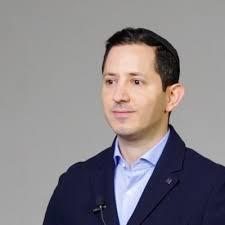
Though Bitton’s Jewish identity looms large, God is perhaps surprisingly (but wisely) left out of his philosophical edifice. He does find examples for his points in the Bible. Pertinent to his memory theme, for instance, he cites God doing various benevolent things because he remembers to. (Kind of odd for a being supposedly omniscient. And much he did was atrocious.)
For Bitton memory means far more than just our everyday understanding. He calls it “actually the core description of what underlies the entire physical universe.” The significance of anything “is dependent entirely on memory.” And central to human psychology is what he calls “the will to memorability.” One’s “essential will is not toward power or pleasure or even life itself but to significance, with all the former serving as means rather than ends.” Desiring “above all else, to be remembered. If people remember us, we feel significant in our lifetime and thereafter. If they forget us, what value does our life have? Thus, although the mind seeks significance and the body immortality, they both manifest as the will to memorability.”
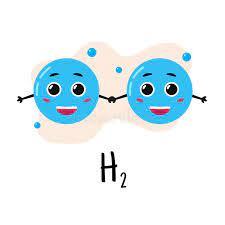
Bitton intensively develops and explores this enlarged concept of memory. For example, he says, a hydrogen molecule has memory in that it knows what it is and what to do. Of course he’s not ascribing consciousness to molecules; rather, using the concept of memory to characterize how existence is put together and operates. For a human individual, the brain doesn’t merely hold memory — it is all memory, at the core of everything the brain does.
Bitton notes the centrality of remembrance for Jews in particular, for obvious historical reasons. Of course other religions too memorialize long-ago events (like the Christ story). And memory is a big issue in today’s America. With fierce arguments over what actually happened last January 6; and how we are to remember our more distant history.
The book points out that Judaism says almost nothing about any afterlife, instead stressing living in the present. For Bitton this underlines the importance of being remembered. We wouldn’t be so concerned with living in memory if expecting to live on in Heaven. But while Bitton focuses on being recalled positively, if mere remembrance were the objective, then evil can confer an immortality at least equally potent. Bitton himself remembers Hitler, almost obsessively.
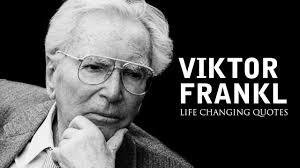
Bitton invokes Viktor Frankl’s Man’s Search for Meaning. Finding meaning in their lives motivated some concentration camp inmates to struggle to survive. Frankl’s follow-up was The Will to Meaning. Bitton equates meaning with significance. Which, he says, provides the meaning of meaning — can something insignificant be meaningful?
Since will is integral to his system, Bitton addresses the perennial conundrum of free will. Particularly slamming Sam Harris’s book arguing against the idea. Harris accordingly held that the only reason to punish crimes is utilitarian protection of society; we shouldn’t “hate” a transgressor. But Bitton thinks Harris “writes as if living in an entirely theoretical world” with scant nexus to our real one. And if free will is an illusion, Bitton says he accepts that, but we still all live our lives with free will as an operative reality, requisite for “personal coherence.” And humans have a clear ability to act contrary to deterministic dictates. (I always point to smokers quitting.)
Let’s unpack Bitton’s philosophy. Start with memory as the essence of the universe. A better rendering might be information as the core of things. Using that word too not in its everyday sense, but referring to all things being describable and definable as information bits. No information, no existence. And, yes, this might be seen as embedding a memory of everything that went before to arrive at what exists now. Yet that’s a pretty esoteric concept whose relevance to the psychology of how any person lives their life is far from clear.
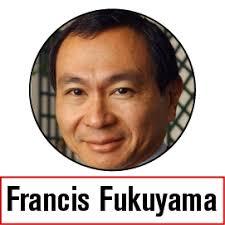
Nevertheless, in that psychology, Bitton is surely right that a thirst for significance is important. I’m reminded of the concept of thymos as elucidated in Fukuyama’s The End of History. Thymos is, more or less, the desire to have one’s human dignity respected; to be somebody rather than nobody. A political force Fukuyama saw as militating toward democracy.
But Bitton goes too far in reducing all human motivations to manifestations of the will to significance. Take power. Sure, it does make you feel important, but has many other attributes pleasurable for their own sakes. The food is good. And we’re programmed by evolution to seek power and status in order to get more mates and sex. Sex too is pleasurable in itself, a key motivator, wholly apart from any others. Bitton clearly errs in positing that we seek such pleasures actually as a means to some other end, significance. No — pleasures are rewarding without that.
He does make a strong case for the importance of memory as instilling meaning into the human project and into one’s individual life. Bitton doesn’t mention the famous case of Henry Molaison; a brain injury left him unable to form new memories, making for a life indeed rather meaningless. But being remembered by others is a different matter. It is fundamentally wrong to elevate that as the be-all and end-all of human psychology. Wrong in two fundamental ways.
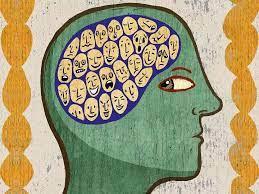
First, being remembered is obviously something that happens in the minds of other people. Yes, your construct of their remembrance exists within your own mind, and can be rewarding. Plus their acting on their thoughts can materially benefit you. All true. Yet let’s not forget that your pleasure centers are located in your own brain, and only there; not in the brains of others. While “no man is an island,” in a very real physical sense each of us is marooned within the confines of our own skulls. Only there can our rewards be instantiated — anything happening in other skulls can give us pleasure only at second-hand.
The other and more fundamental problem is Bitton’s casting one’s prime motivation as concerning not just something happening in other minds, but happening there after you’re dead. Here too of course contemplation of posthumous phenomena can be pleasurable; but you won’t be around to witness or experience them.
That’s what death is: nonexistence, an end to all experiencing. It’s this reality you must confront in order to live an authentically meaningful life. Authentically meaningful to you. It all must unfold within the confines of your lifetime.
Yet again, you can take satisfaction from things you envision happening afterward — for example, your contributing to the future world’s betterment. But when you are dead, you yourself gain nothing further from it.
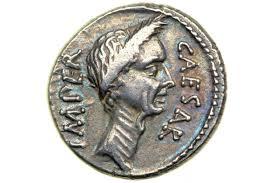
Bitton gives numerous examples of people craving to be remembered. Like Achilles choosing to live on in glory, rather than a long earthly life in obscurity. In my own youth, I too imagined my life would be meaningless without fame (or at least “significance”). The corrective came when I authored a book that did give me my “fifteen minutes” of fame (albeit just locally). I thought it would apotheosize me to a higher plane of existence. It did not. That eventually gave me the understanding I’ve tried to express here. Julius Caesar’s fame has long outlived him, but what good does that do him now?
And how long does remembrance last anyway? In the cosmic scheme of things, only an eyeblink. Will even Caesar be thought about in a million years? A billion? Premising your life on memorability must be in vain because everyone is ultimately forgotten. Immortality is a chimera.
Furthermore, while it’s rational to be concerned with remembrance by people important in your own life, Achillean or Caesarean glory is something in the minds of strangers unconnected to you. Its meaning for you is a false sort of meaning. It literally should not matter to you.

Recall Bitton’s baldly querying, “If [others] forget us, what value does our life have?” And he explicitly says significance is something requiring validation from other people; otherwise, again, one’s life has no meaning. This puts the onus for the value and meaning of your life entirely in the minds of other people. I believe instead that your life’s value is primarily to yourself, your life’s project is to make it rewarding in itself, to you. Because you are, to yourself, the most important person on Earth. It’s how you see yourself that counts most, not the opinion of others. “To thine own self be true.”
Do not live with the goal of being remembered. Live a good and rewarding life for its own sake, in the here and now. That’s all we get. Nothing happening after can tickle your bones crumbling in your grave.
